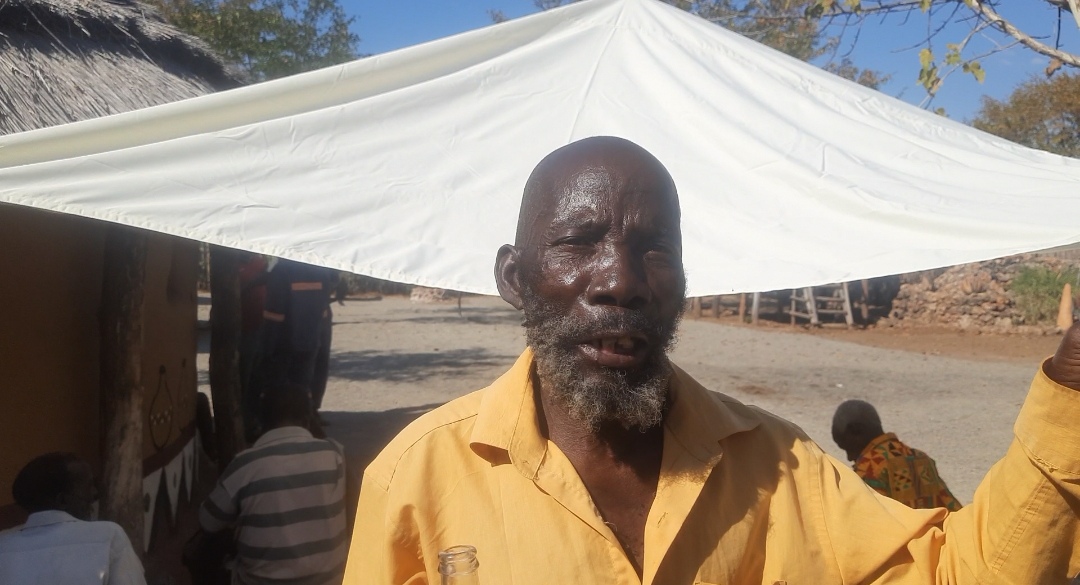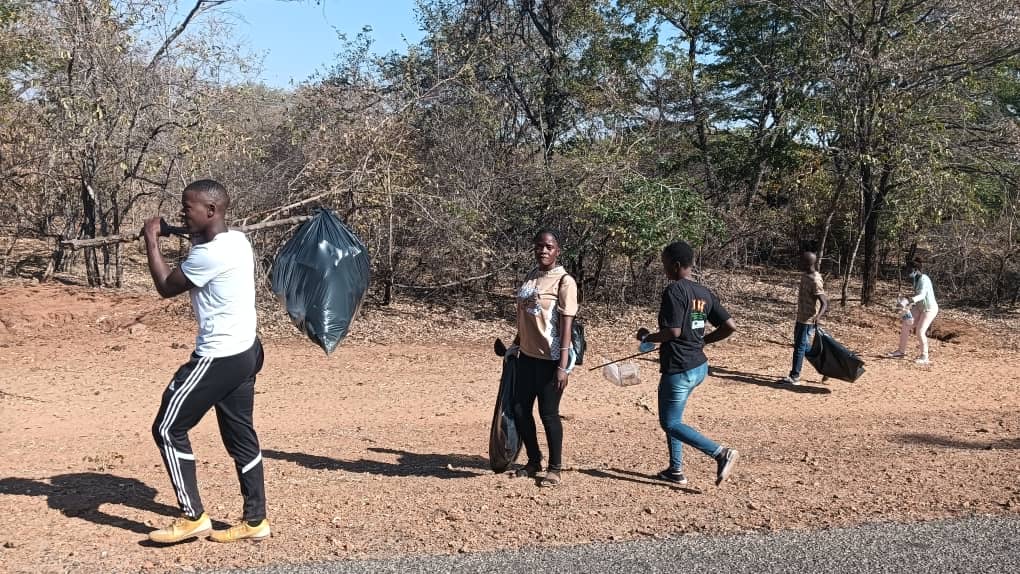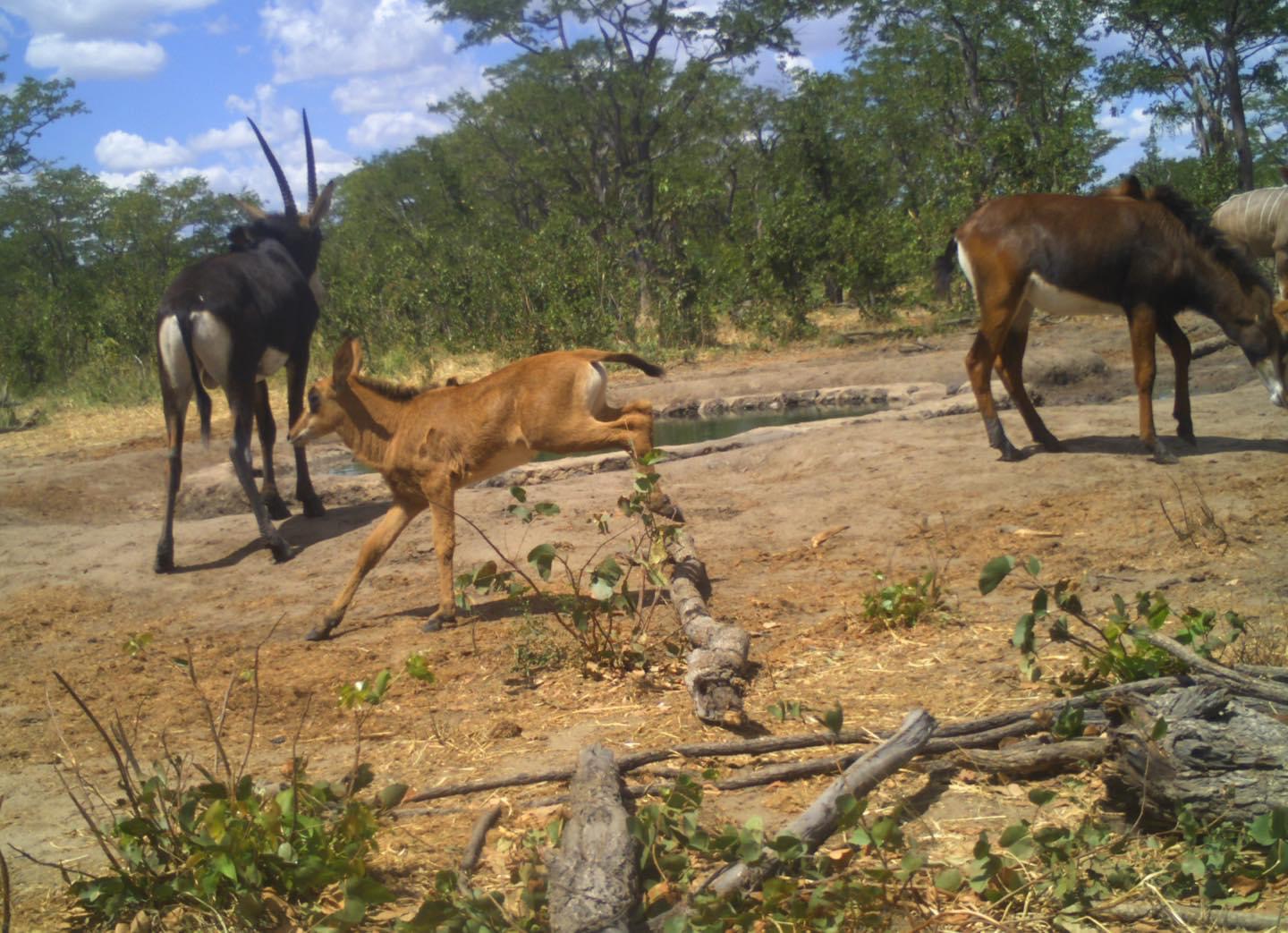BY LWANDLE MTHUNZI
Villagers in Lubangwe area in Hwange have said they are facing serious drought as a result of changing weather patterns which result in erratic rains and invasion of fields and homesteads by wild animals.
Lubangwe is on the edge of the Hwange National Park and villagers, besides struggling to access clean water, endure running battles with wild animals all year round to protect their crops and livestock as animals stray into communities in search for food as a result of the effects of climate change.
Climate change refers to long-term shifts in temperatures and weather patterns, where the start of the rainy season is no longer stable.
Such shifts in weather can be natural, due to changes in the sun’s activity or large volcanic eruptions and also because of human activities such as burning of fossil fuels like coal in nearby Hwange mining town, oil and gas, cutting down of trees for farming and charcoal production, which have been the main driver of climate change.
Villagers said women and girls are the worst affected as they have to walk long distances to fetch water from the nearby Lubangwe river which also dries up during the dry season.
They appealed to the government to intervene and drill some boreholes.
VicFallsLive, through community listening sessions, also established an information gap on the community’s understanding of climate change, hence the need to educate people about changing weather patterns for sustainable livelihoods.
Edwin Nyoni, who is village head for village 1 Railway Farm 55 said people have tried conservation farming, but elephants and quelea birds destroy crops.
“We don’t really understand this climate change thing because when we went to school we didn’t learn about it so we wish there could be awareness about it,” said Nyoni.
He said drought has been a challenge the past few years.
“It used to rain but in the last three or four years we have been facing drought. We have shifted planting season and used conservation farming as well as resorted to drought resistant crops like sorghum and millet but still it’s the same.
“We also have a problem with elephants and qualia birds that destroy the little that we would have gotten. We usually take turns to guard our crops at night and sometimes we call Zimparks rangers to come and help. As we speak people are facing drought so we hope the government will help with grain relief,” he added.
Lanyula Village 2 head Joseph Munsaka concurred that because of changing rainfall patterns farmers are forced to plant early.
He said wild animals are also a problem in his village.
“Rainfall patterns have changed and people now have to plant early unlike before because the rainy season ends early in February. We do not know what is happening. Those who plant early in November get better yields and if you delay planting you don’t harvest anything,” said Munsaka.
He appealed to the government to help with weather information ahead of the rainy season so that villagers are aware of when to plant.
“We have a problem of elephants destroying crops leaving people facing hunger. As we speak this year few villagers got better yields but many were disturbed by elephants and as village heads we expect the government to help us with food so we feed our people.
Gilbert Munkuli of Village 3 also echoed similar sentiments, adding that high temperatures were making farming unsustainable.
Besides wild animals that include lions, there are also other pests that have invaded the area because of change in weather patterns.
“We also have pests and birds that destroy crops and we appeal to the government to help us because people are struggling,” said Munkuli..
“Rivers dry up and the few boreholes that we have have also dried up. Lubangwe river floods during the rainy season, but quickly dries up and we are left with no water.
“People are losing cattle to drought and wild animals and some families have lost the whole herd. We ask the president to help us. We also need schools because our children walk seven kilometers one way to school through the wildlife infested bush and across the river which should also have a bridge,” he said.
Nesi Mpala of village 2 said women and children are the worst affected as they have to walk for about three kilometers to fetch water through wild animal infested bush.
She thanked a local developer that has installed a solar powered borehole at his project and allowed neary homesteads to fetch water.
“During the rainy season it’s better because rivers have water but now that we are in the dry season all rivers dry up. We thank Lanyula Cultural Village because they have installed a solar powered borehole from where people fetch water. Our prayer is that in future he will be assisted to put jojo tanks for us in the village,” she said.
Another villager Evah Makaza from village 1 said changing weather patterns have worsened the water situation in the area, with girls and women the worst affected.
She appealed to the government and donor community to help establish self help projects for sustainability.”


 Slider2 years ago
Slider2 years ago
 National2 years ago
National2 years ago
 Tourism and Environment3 years ago
Tourism and Environment3 years ago
 National3 years ago
National3 years ago
 National2 years ago
National2 years ago
 National3 years ago
National3 years ago
 National1 year ago
National1 year ago
 National2 years ago
National2 years ago




 The trust emphasized the significance of this discovery.
The trust emphasized the significance of this discovery.


